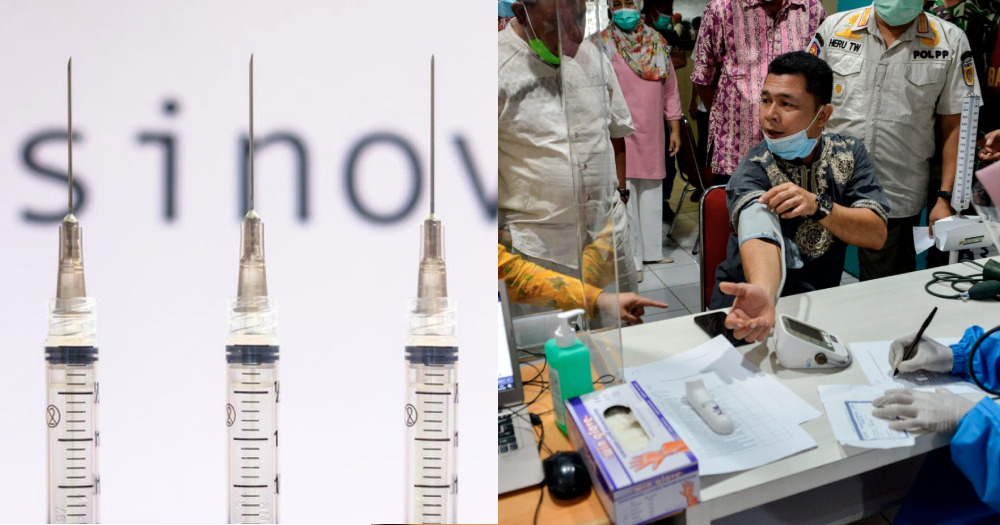Follow us on Telegram for the latest updates: https://t.me/mothershipsg
The Indonesian government said it is satisfied with Chinese vaccines, adding that they have met World Health Organisation (WHO) requirements of being more than 50 per cent effective, AP reported.
In addition, a spokesperson for Indonesia's Covid-19 vaccination programme, Siti Nadia Tarmizi, noted that clinical trials within the country had indicated a 65 per cent efficacy rate.
She said this means "the ability to form antibodies in our bodies is still very good".
Besides Sinovac, Indonesia has also been using the United Kingdom's AstraZeneca vaccines, as they have been approved by the WHO, Bloomberg reported.
The country is most heavily impacted by the Covid-19 pandemic among all Southeast Asian countries, with total number of cases climbing past 1.5 million.
Chinese official says local vaccines are not that effective
Indonesia's statement comes after China's top disease control official said that Chinese vaccines do not offer "high protection rates", and also suggested mixing different types of vaccines to raise the efficacy rate.
The official, named Gao Fu, later walked back his statement, saying that his comment was misinterpreted.
He said the efficacy rates of all vaccines could vary, and that improving their effectiveness is something that all scientists need to consider.
Social media posts and news articles that carried his original comments were also promptly edited or taken down, according to Bloomberg.
Tarmizi said Indonesia will wait for China's decision on the possibility of mixing different vaccines to boost their effectiveness.
Varying trial results
Efficacy readings of Sinovac's vaccine have varied. A recent Brazil phase 3 trial revealed that it has an efficacy rate of slightly more than 50 per cent against symptomatic Covid-19 cases, and much more effective against severe Covid-19 cases.
Results from a phase 3 trial in Turkey show that they are 91.25 per cent effective.
However, researchers in the study in Brazil noted that when the second dose of the vaccine was administered in no less than 21 days, the efficacy rate is boosted among a number of participants.
Sinovac has acknowledged varying levels of efficacy, but said they can be attributed to the different ages of people in the studies, the strain of virus, as well as other factors.
On the other hand, Pfizer-BioNTech and Moderna's vaccines, have an efficacy of around 95 per cent according to studies.
Richer countries are more likely to snap up Pfizer and Moderna shots, leaving other less developed countries reliant on Chinese vaccines which are more affordable and easier to transport.
Besides providing vaccines to other nations, China has also been driving inoculation among its people. It aims to vaccinate 40 per cent of the population, around 560 million people, by the end of June.
While it is not mandatory to get vaccinated in China, the government has offered incentives to encourage its citizens to get their shots.
Top image adapted via Chaideer Mahyuddin/AFP via Getty Images
If you like what you read, follow us on Facebook, Instagram, Twitter and Telegram to get the latest updates.
